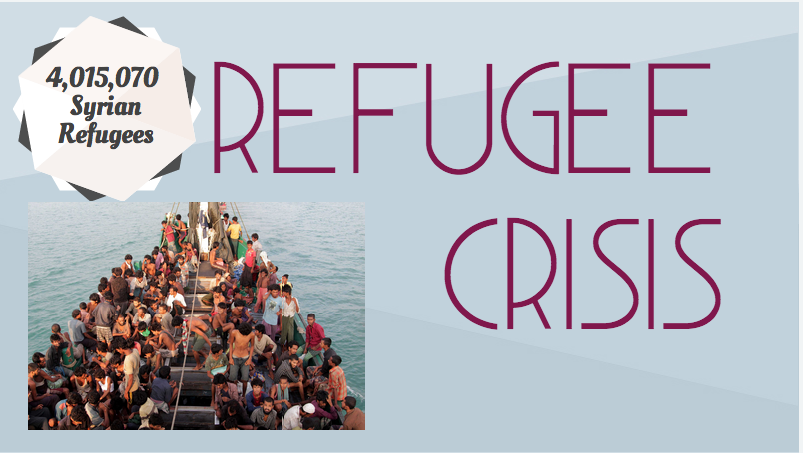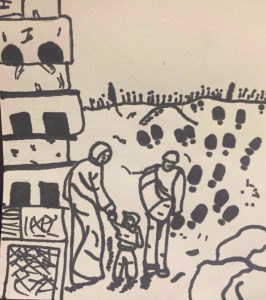
Since 2011, an estimated nine million people have fled from their respective war-torn countries, leaving Europe midst a serious refugee crisis. Migrants and refugees from the Balkans, the Middle East, and especially those from Syria have flooded Europe, creating a problem almost as bad as the refugee crisis of World War II.
This crisis has led to tension between European Union member states and tightened border controls. The European Commission has proposed to distribute refugees throughout E.U. member states, leaving the Czech Republic, Hungary, Slovakia, and much of Eastern Europe in disagreement. The proposal is expected to help, but mostly for countries that have seen the greatest influx of refugees, such as Italy and Greece. Some countries have gone as far as to shut down trains that served to transport Syrians. Contrary to Europe’s general reluctance to accept refugees, several countries such as Germany and France, have agreed to accommodate for the millions who have lost everything.
Media publication of suffering refugees (for example, a photograph of a drowning Syrian boy) has garnered increased sympathy from newspapers and magazines with opposing views in past few months. However, Germany has used media to attack Britain, whose somewhat anti-immigrant government has been unyielding thus far in taking in refugees. The German newspaper Bild called the British, “the slackers of Europe,” and in response, British Prime Minister, David Cameron reluctantly agreed to accept 20,000 refugees by 2020. So far, Germany has been the most welcoming to Syrians compared to the number of refugees Britain is willing to accept, which only stands around 0.8% of the number Germany accepts. The British government claims that with help from its foreign-aid budget, it will supply housing and protection for refugees.
Austria is another popular destination for refugees, many of whom travel through the country on their way to Germany. Many foreigners traveling to Austria arrive in a small village near the Hungarian border, and the town is having trouble finding space for many of these visitors. The Austrian Red Cross says that finding accommodations is by far the greatest struggle.
The Obama administration has also pledged assistance, now agreeing to take in 100,000 refugees by 2017 to ease the strain on European countries. The United States has plans to try to increase the number of refugees they will accept while ensuring background checks to prevent terrorists from entering. Secretary of State John Kerry is working alongside Germany’s Minister of Foreign Affairs Frank-Walter Steinmeier to try to find ways to end the war in Syria. Next week, the United States and Germany will be talking to the United Nations General Assembly to win support in sending more aid to refugee camps. Initially, Germany had pledged to admit 30,000 refugees, a number higher than that pledged by any other European country. Recently, however, Germany closed its borders temporarily to control the influx of migrants.
The refugee crisis has been causing heightened concerns in Europe for several months now as more people flee to European countries each day fearing for their lives.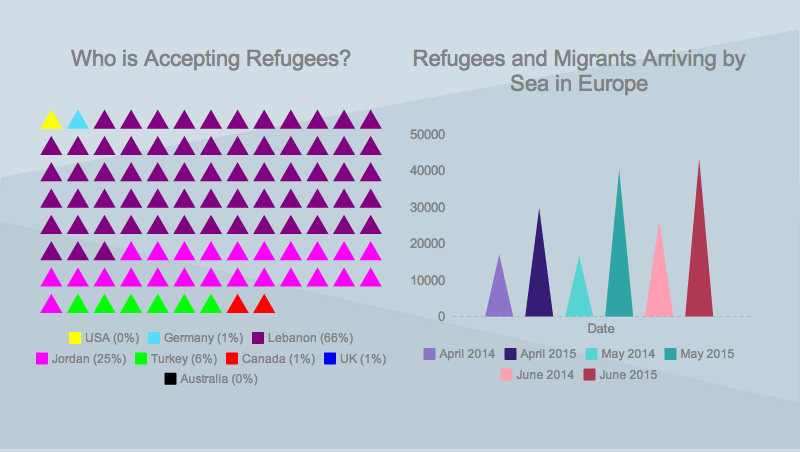
An interview with Dr. Bernardo, RHS History teacher, regarding the Syrian Refugee Crisis.
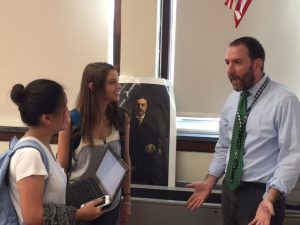 Q: What comes to mind when you hear the words “refugee crisis”?
Q: What comes to mind when you hear the words “refugee crisis”?
A: I think about suffering children. I’m a parent of a five year old and the first thing that I think of is that when you see the crisis you see it’s families suffering… it’s the kids who are really suffering.
Q: What role do you think the US holds in this issue? Should the government be directly involving itself or is it not our responsibility/duty?
A: I heard the Hungarian foreign minister defend what his country is doing… and so what we have to consider is the government has two competing priorities. Obviously it has to respond to the crisis but it also wants to take care of its own people…keeping in mind that doing so may alter the economics… but it’s a very hard decision. My heart breaks for those people.
Q: In your opinion, what is the best thing we can do for the refugees to offer aid in any way? Should we be helping with internal conflicts or the refugees themselves?
A: Hungary is looking at taking in hundreds of thousands of people which is just not economically viable, particularly in the smaller countries. Even in America we have trouble taking in that many people without it having a huge effect. Aid is fine and we have the money to spend but that‘s not going to help people. They need homes and they need Syria to be healed. Right now, ultimately we have to find a way to put pressure on everybody to start figuring out a way to solve the crisis… we have to look at some sort of coalition building. The bottom line is we aren’t going to solve it by giving people money. There are refugees from the Israel Palestinian affair who are now in their second generation refugee status… people need homes and they need the settlements to build their lives again.
Q: Do you know of any other periods in history when a similar crisis was occurring? If so, how was the crisis solved and who was most involved in the aid?
A: The Armenian Genocide comes to mind, in which an entire civilization tried to flee and leave. The Armenians feel like they’ve never had justice for it. These crises are the hardest to solve.
Q: What do you think is the biggest national threat to the US if we let more refugees in?
A: The news loves to get worried about ISIS plans and all that kind of stuff, but I don’t think that that’s the problem. I think the problem is how many and where. How many people are we going to take in? Where do we want to put them? How are we going to find some place for them to be economically self-sufficient?
Q: What values of the US are being tested during this crisis? (e.g. security, stability, equality, etc.)
A: That’s a good question; they all are. How committed are we to being a peacekeeper in the region. How committed are we that we stand for humanitarian relief? How committed to aid are we? How interested are we in really finding a root solution in a problem that is really about democracy in the attempt for people to express themselves and how willing are we to work as a coalition? There are lots of other nations that have their fingers in this issue so I think foreign policy-wise it’s going to test everything. I’m glad I’m not president.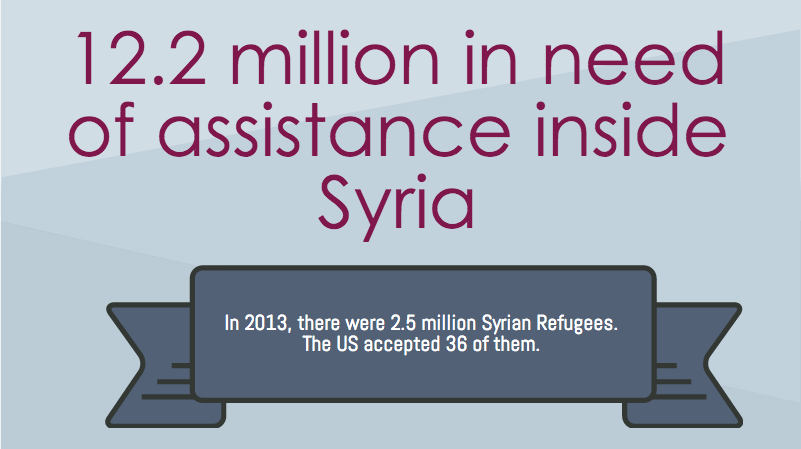
Sources


